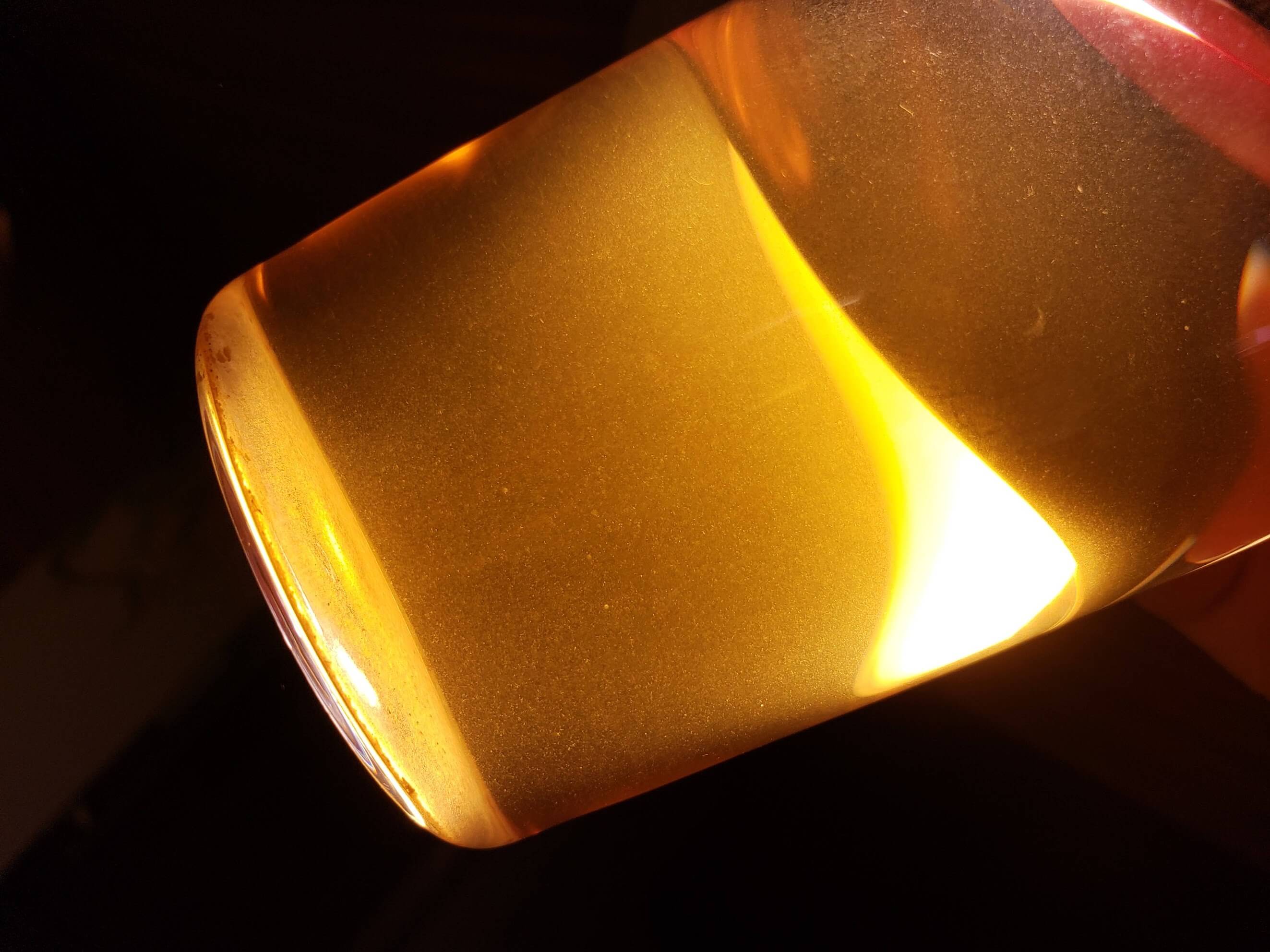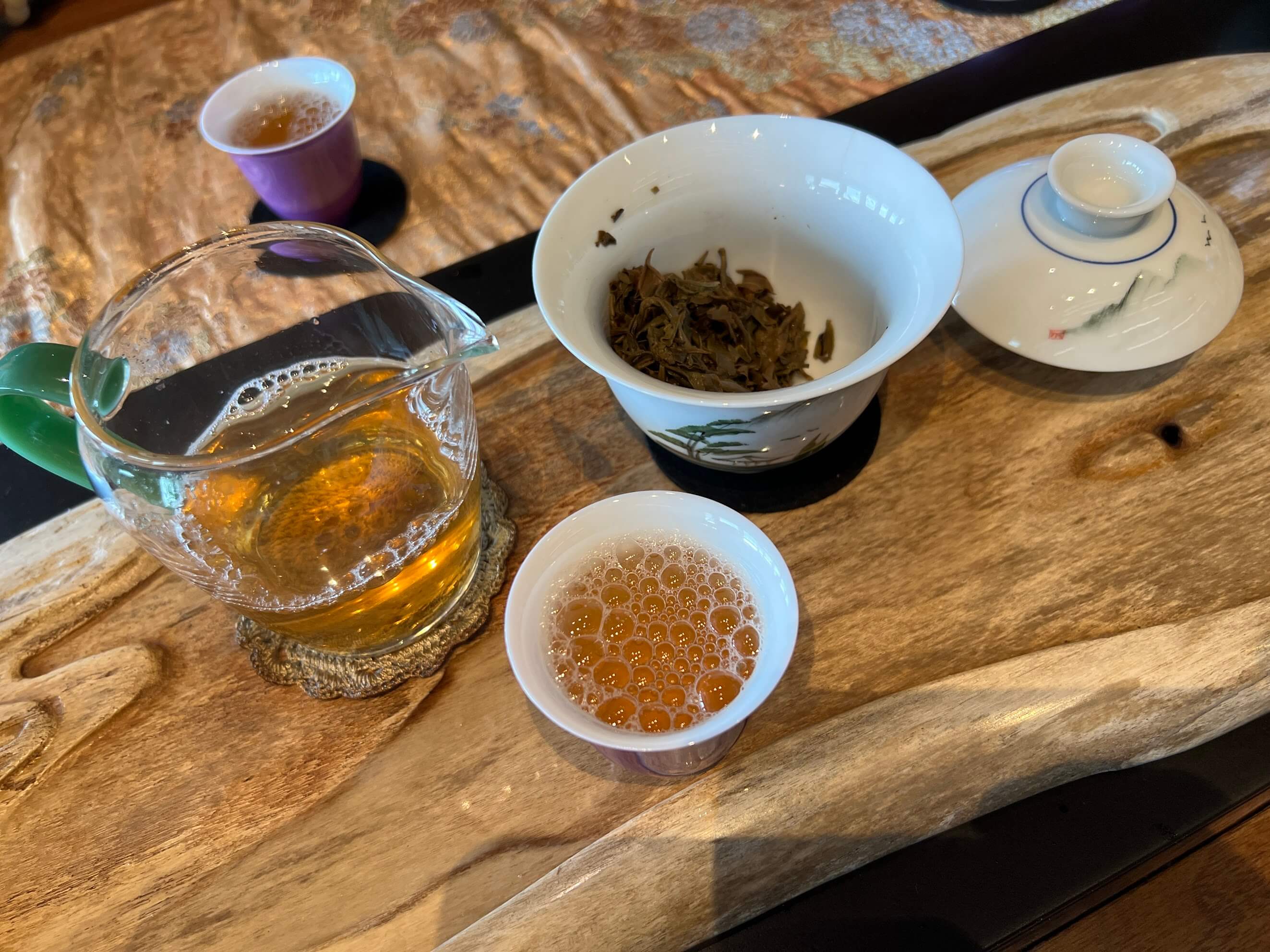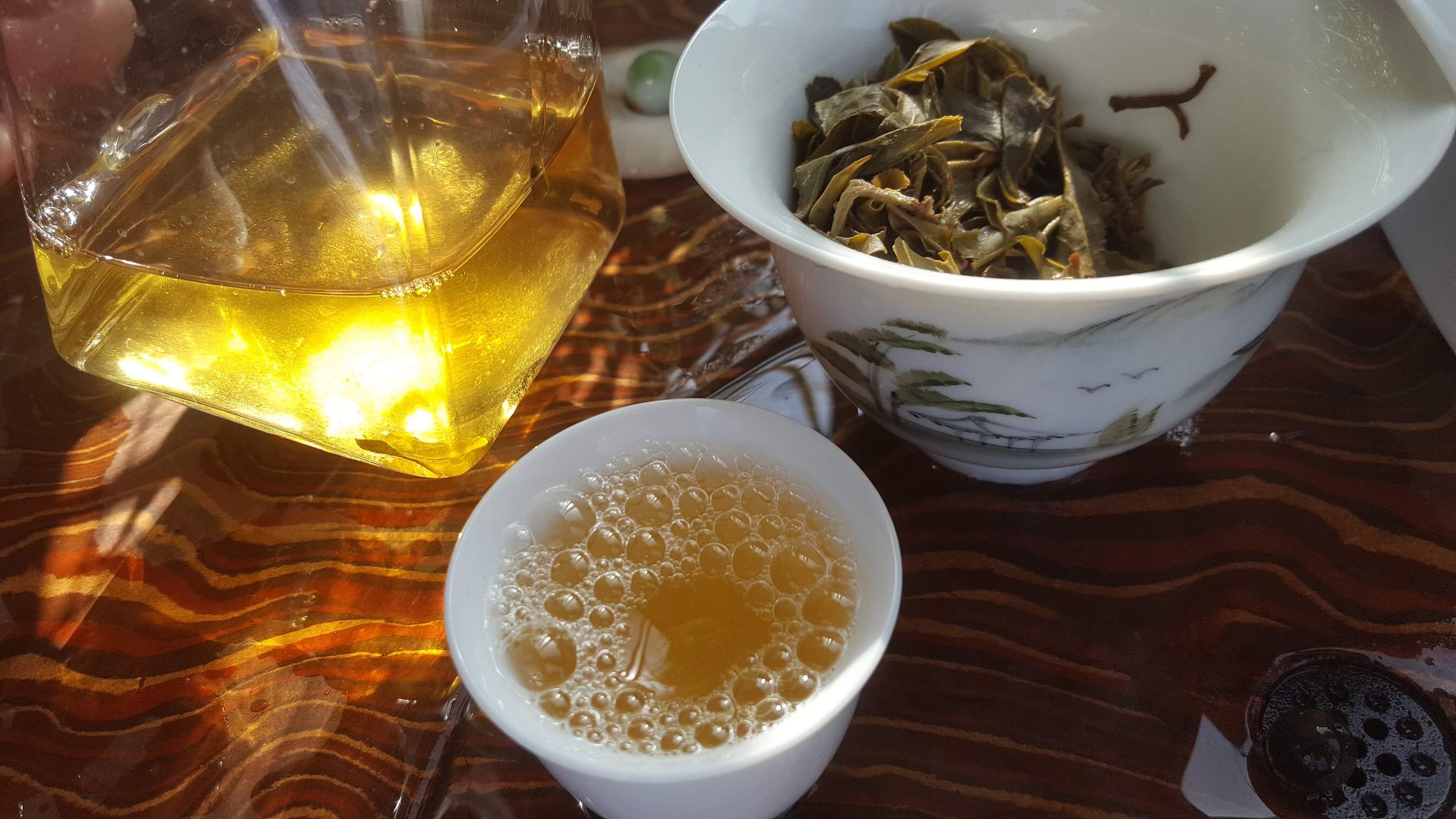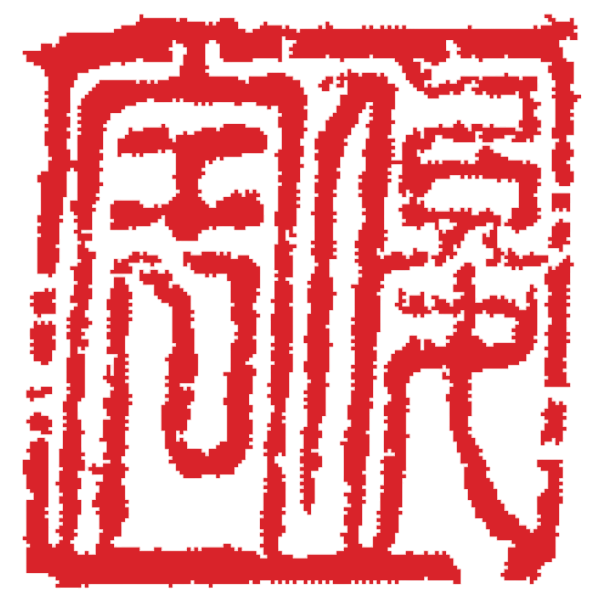L-Theanine and Caffeine: The “Joyful Rivals” in Puerh Tea
Living in every cup of Pu-erh tea are two little partners with completely opposite personalities: L-theanine and caffeine (also called caffeine). L-theanine is like a gentle “soother” — it helps us relax, drives away anxiety, and improves sleep quality. caffeine, on the other hand, is an energetic “little alarm clock” — it clears the mind, chases away fatigue, but if you drink too much or too late, it can keep you awake. One wants you to “calm down” (soothe the mind), the other wants you to “wake up” (stimulate), singing opposing tunes in the tea every day — aren't they just like a pair of “rivals”?
Many people wonder which kind of Puerh tea has the least impact on sleep. The answer is aged tea (including well-stored aged raw Puerh and fermented aged ripe Puerh). Why? Let's look at how this pair of “rivals” changes between new and aged tea: L-Theanine content: new raw > aged raw > new ripe > aged ripe (decreases with age) Caffeine content: new raw > aged raw > new ripe > aged ripe (also decreases with age)

In simple terms, as the tea ages, both the calming L-theanine and the stimulating caffeine decrease. So in the end, which one wins — calming or stimulating? The truth is they work together as a team. The calming effect of tea is actually the combined result of L-theanine and caffeine; you can't look at just one of them. In new raw tea, especially tender bud tea, caffeine levels are particularly high, and its stimulating power completely overpowers the calming effect of L-theanine, so drinking new raw tea is more likely to affect sleep. In aged raw tea, the stimulating effect is still slightly stronger than the calming one, but the impact on sleep is usually quite small.

For ripe Puerh, especially aged ripe Puerh, a large amount of caffeine is broken down and transformed through pile-fermentation or long-term storage. Although L-theanine decreases too, overall the stimulating effect is greatly weakened and generally does not affect sleep. These “rivals” are actually great partners. Scientists have discovered that although they seem to “fight” on the surface, behind the scenes they help each other out. L-theanine can “rein in” caffeine — when caffeine makes your heart beat faster or causes slight nervousness (palpitations), L-theanine steps in to ease those feelings. Together they can also create an “optimal state”: when combined, they produce a feeling of being “alert yet peaceful” — the mind is clear, but without anxiety or restlessness. This is why the stimulation from tea often feels gentler and less likely to cause heart palpitations than drinking pure coffee. L-theanine acts like a “natural sedative” in tea and is one of the secret weapons that makes tea known as a “healthy stimulant beverage.”

L-theanine and caffeine may look like a pair of “rivals” who bicker every day, but in reality they are “joyful rivals” who cannot do without each other. L-theanine skillfully neutralizes the tension caused by caffeine, making the stimulating effect more comfortable and peaceful. In the tea broth they “love and fight,” cooperating perfectly, ultimately working together to deliver just the right amount of clear-headedness. This marvelous combination is precisely the charm of Pu-erh tea.
